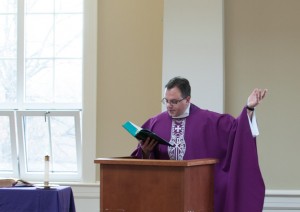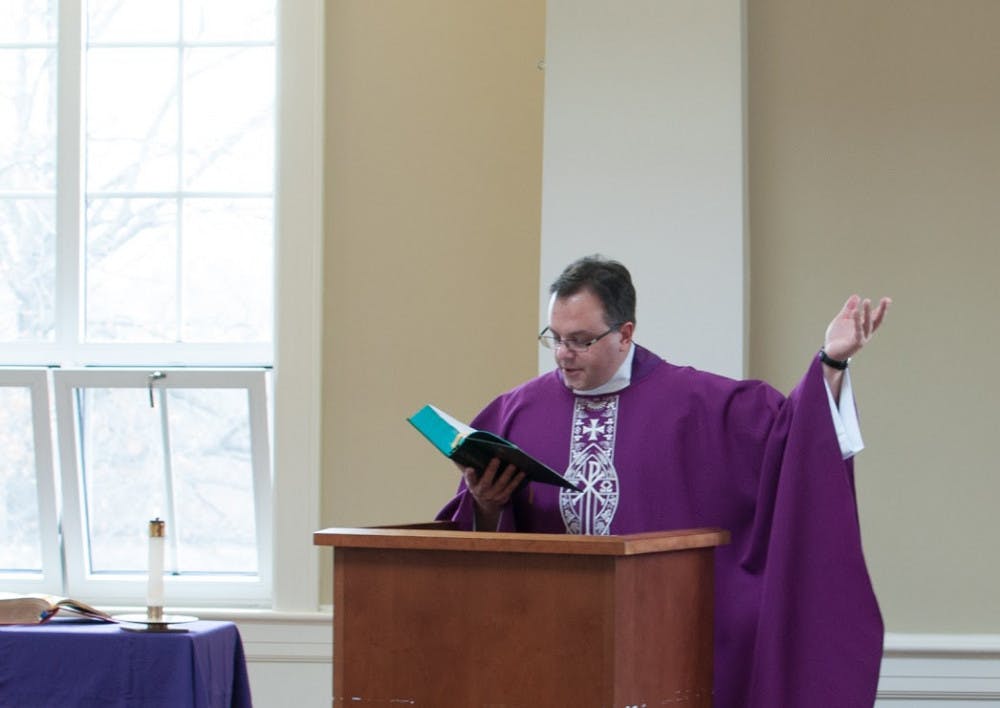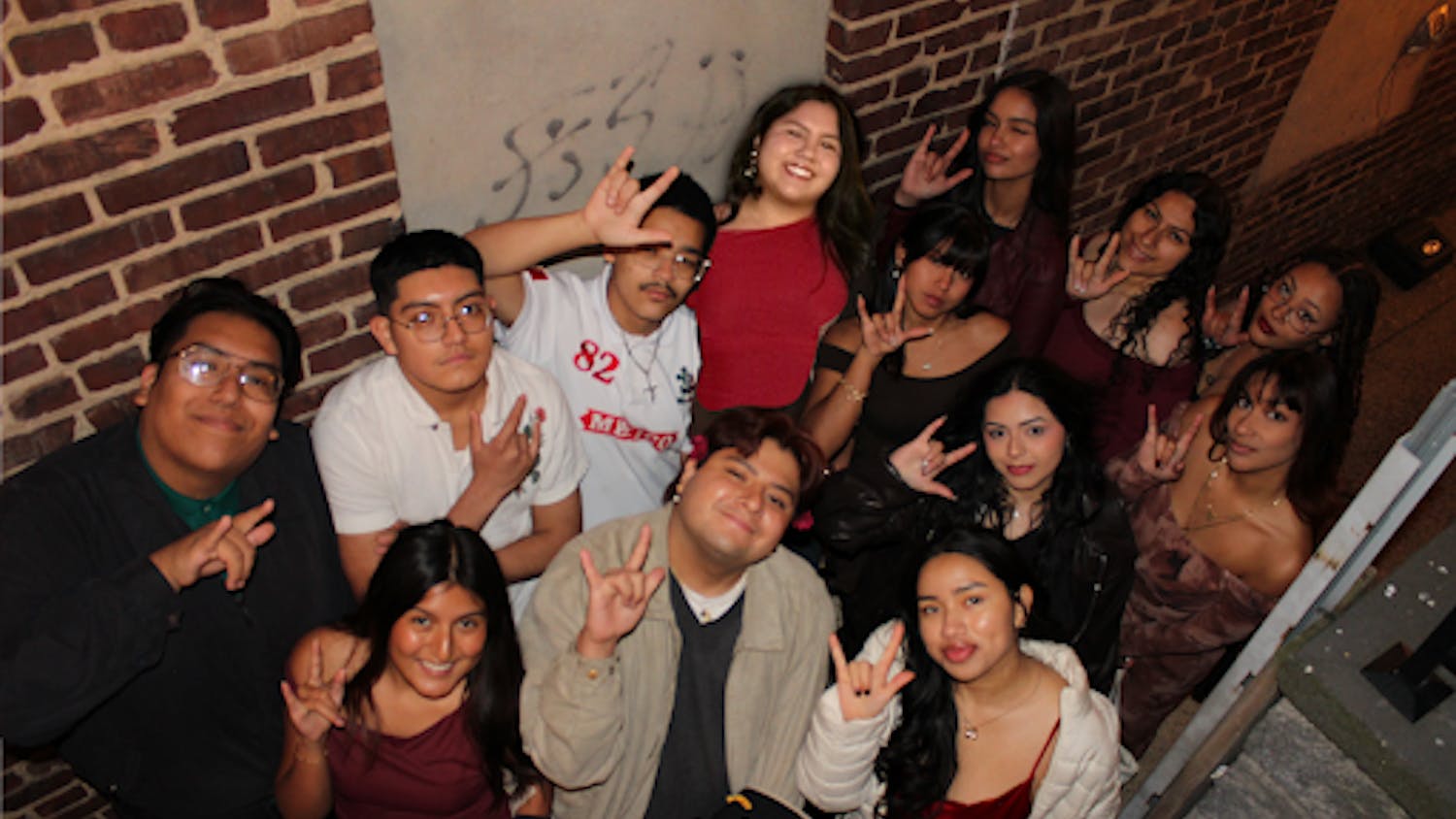Many consider a student’s years in college to be the most critical time for his or her religious and spiritual development. The College offers nine religious and spiritual organizations for students to explore their faith if they choose to do so.

“We as a College believe in whole-person development, and spirituality is a big part of that for many people, though not everybody,” assistant vice president for Student Affairs Ceil O’Callaghan said. “But, for many people, they will not be fully actualized without also developing their spirituality.”
The most recent national survey the College was a part of indicated that 49 percent of incoming freshman were Roman Catholic. After Catholicism, Judaism was the next largest group, with all other religions combined being less than the percentage of students who are Jewish.
However, a survey led by the College showed much lower percentages of believers in all religions, yet more diversity in the religions students identified themselves as.
But the homegrown survey had a much smaller response rate, according to O’Callaghan. Instead, she said that a more accurate predictor of the religious and spiritual makeup of the College can be measured by looking at the student group sizes.
According to O’Callaghan, Catholic Campus Ministries (CCM) and New Jersey Christian Fellowship (NJCF), a nondenominational Protestant group, are the two biggest groups on campus. While CCM gets in total 200 to 250 congregants at its three weekend masses, NJCF gets anywhere from 100 to 150 people in one sitting.
To differentiate between a religious organization being created based on student interest and a religion trying to attract students, the College requires that the organization first become a recognized student group. Then it may
“They go through the student organization process to be approved — then, if they want to use the Spiritual Center or want to be a recognized religious group, they come and meet with me,” O’Callaghan said.
After becoming a recognized student group with a religious focus, the students can then choose to host a spiritual leader.
“None of the spiritual leaders on campus are paid spiritual leaders,” O’Callaghan said. “All of them are volunteers to the campus. Many of them are paid by their religious entity. For example, our Episcopal minister is paid through the Episcopalian Diocese.”
O’Callaghan continued to explain that there are great religious leaders who have given a lot of themselves to the campus.
“I sometimes feel we don’t recognize that contribution as much as we could or should,” O’Callaghan said. “We get to take them for granted because they continue to serve in a way many of us admire.”
Junior biology and seven-year optometry double major and president of Chabad Avi Yehudai credits Rabbi Kivi’s leadership to greatly impacting the success of both Chabad and Jewish life.
“Over the past few years, I can honestly say I’ve developed a great relationship and friendship with the Rabbi that I expect to last much longer than my college years,” Yehudai said. “Chabad would be nowhere without the Rabbi Kivi and his wife Zeesy, who serve a crucial role in helping to organize and plan events.”
Students get a lot out of having such strong religious and spiritual leaders and organizations on campus. According to Yehudai, his college experience would be “severely lacking” without Chabad.
The relationship that the students and spiritual leaders have is mutually beneficial. According to one of NJCF’s leaders and ’07 College graduate Chris Loesser, returning to NJCF has let him further explore his spirituality.
Loesser, along with his wife and fellow College graduate Christine Loesser, guide the students of NJCF. They say that working with students is special and enjoyable.
“College students are asking meaningful questions and often exploring their interests, gifts, calling and relationship with (their faith),” Loesser said. “I absolutely love walking with them as they search out these things, helping them to orient themselves and invest their discoveries.”
The religious leaders recognize how important these years are for a young adult in developing faith. O’Callaghan said that most of the campus’s religious groups want “to keep students grounded in their faith rather than have them potentially leave the faith and have them come back later, if they do at all.”
It seems that the organizations are succeeding in keeping students connected to their faith throughout college.
“Having Chabad on campus is important to me because it has truly become my home away from home,” Yehudai said. “What the Rabbi and his wife provide, no amount of official school events can provide, in my opinion.”
O’Callaghan said the groups are also a great opportunity for students to find leadership roles. But most importantly, they keep students grounded.
“Some people may practice on a casual basis, but when things are tough — or on the flipside, when things are good — they will sometimes turn more to religion,” O’Callaghan said. “But in those extreme periods, they feel they need that connection. For others, it’s a very steady part of their lives, and if there was not that opportunity to realize that on a daily basis — or at least weekly basis — they would feel they were missing out on something.”







